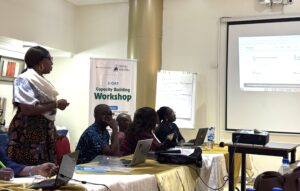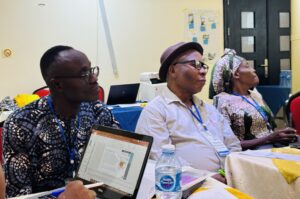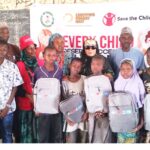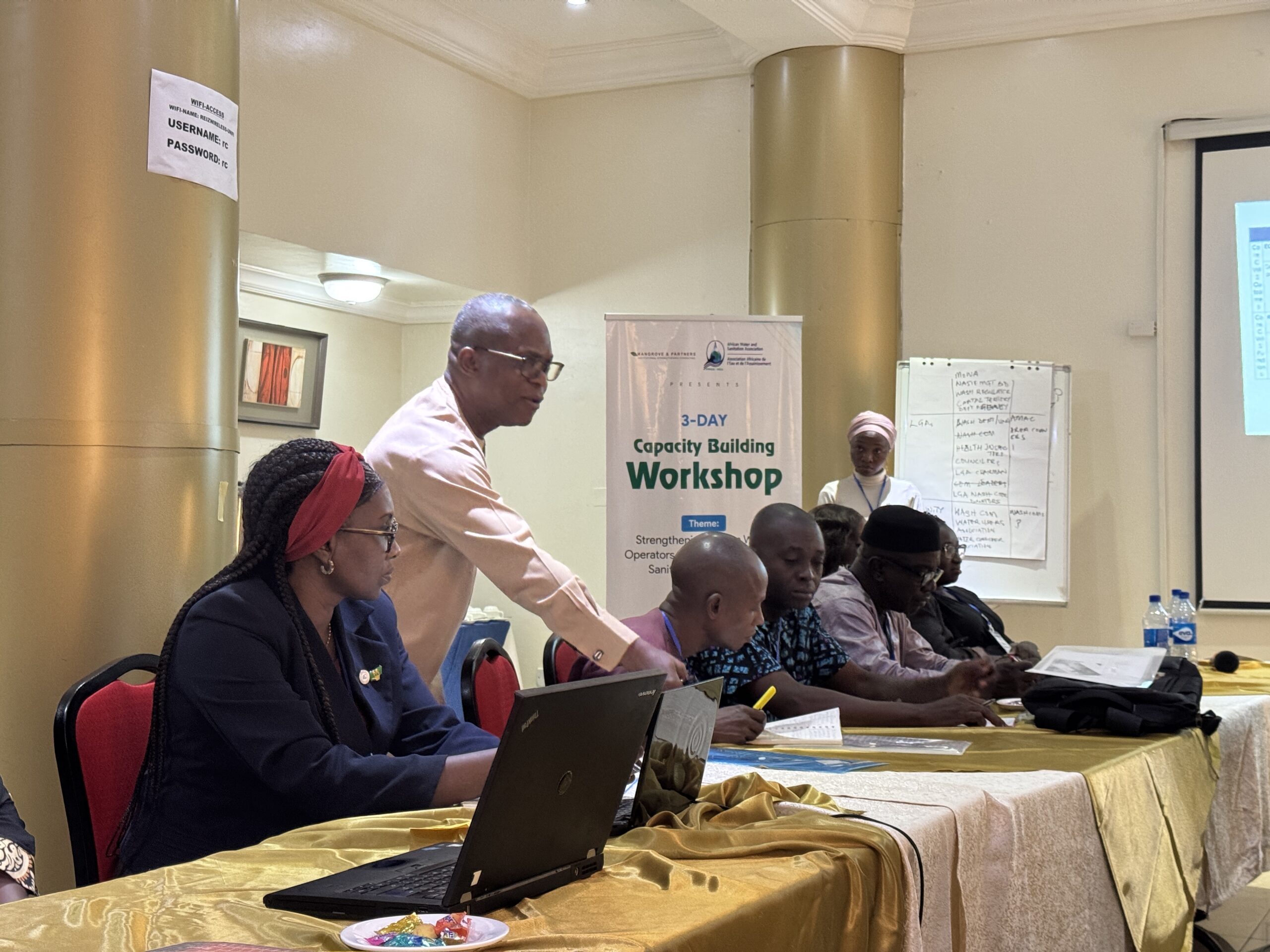By Akpan Glory
Stakeholders in Nigeria’s water and sanitation sector have been urged to adopt Citywide Inclusive Sanitation (CWIS) approaches to address the country’s sanitation crisis, strengthen public health, and build resilient cities.
Mr Timeyin Uwejamomere, Managing Partner of Mangrove and Partners, made the call in Abuja at a 3-day capacity-building workshop organised under the African Water and Sanitation Association’s (AfWASA) SAO-CWIS programme.
The News Agency of Nigeria (NAN) reports that the programme is being supported by the Bill and Melinda Gates Foundation.
Uwejamomere, a leading development expert, described Nigeria’s sanitation crisis as a silent emergency with devastating consequences, especially for children.
“Sanitation is silently killing more Nigerians than war, in the last five to ten years, sanitation-related issues have caused more deaths annually than HIV and AIDS.
“It is the second leading cause of death among children under five”.
According to the 2021 WASH National Outcome Routine Mapping (WASHNORM) report, over 48 million Nigerians still practise open defecation, while only 13 per cent of the population have access to safely managed sanitation services.
The majority of urban residents rely on poorly managed onsite sanitation systems, which pose serious public health and environmental risks.
Albeit the Federal Government’s commitment to end open defecation by 2025, Uwejamomere noted that only Jigawa has achieved the Open Defecation-Free (ODF) status out of 36 states, indicating the urgent need for a national rethink.
“The 2025 deadline is here, and the results show how far behind we are. We must act now to avoid shifting the burden further. The revised 2030 target will also be missed if urgent, coordinated efforts are not taken,” he warned.
Uwejamomere stressed that the CWIS approach prioritises both sewered and non-sewered sanitation options, ensuring inclusive, citywide access for all, including those living in informal settlements.
 According to him, it promotes safe sanitation for all by prioritising the underserved, ensuring efficient use of resources, and delivering equitable, just, and accountable services.
According to him, it promotes safe sanitation for all by prioritising the underserved, ensuring efficient use of resources, and delivering equitable, just, and accountable services.
“It recognises sanitation as a human right, requiring public systems to support universal access for the health and dignity of all.
“Sanitation must be affordable, accessible, and safely managed.
“The focus must shift from infrastructure-heavy projects to inclusive service delivery systems backed by strong institutional frameworks,” he said.
He urged development partners to sustain investments in sanitation system strengthening, local capacity development, and governance reforms to accelerate progress towards the Sustainable Development Goals (SDG 6.2).
 Also speaking, the Nigeria Country Representative of AfWASA, Mr Francis Umemezia, explained that the organisation engaged Nigerian technical experts, such as Mangrove and Partners, to implement the programme and build local capacity.
Also speaking, the Nigeria Country Representative of AfWASA, Mr Francis Umemezia, explained that the organisation engaged Nigerian technical experts, such as Mangrove and Partners, to implement the programme and build local capacity.
“Sanitation is a continuous and essential public health service, there can be no clean water without sanitation.
“CWIS ensures that no community, rural, peri-urban or urban is left behind,” Umemezia said.
According to him, the inclusion of marginalised communities, women, and persons with disabilities in sanitation planning is central to the CWIS agenda.
“The current workshop is going well. Delegates from Delta, Enugu, the Federal Capital Territory, and others are gaining new tools to develop context-specific sanitation roadmaps.
“This is how we build a healthier and more inclusive Nigeria,” he added.
NAN reports that the training focused on key components of CWIS, including faecal sludge management, stakeholder engagement, gender inclusion and performance monitoring.
Others include the use of diagnostic tools such as Shit Flow Diagrams (SFDs) to analyse sanitation realities in cities.
Participants included representatives of benefiting state ministries, water and sanitation agencies, local government departments, NGOs, and private desludging operators. (NAN)
Edited by Tosin Kolade












